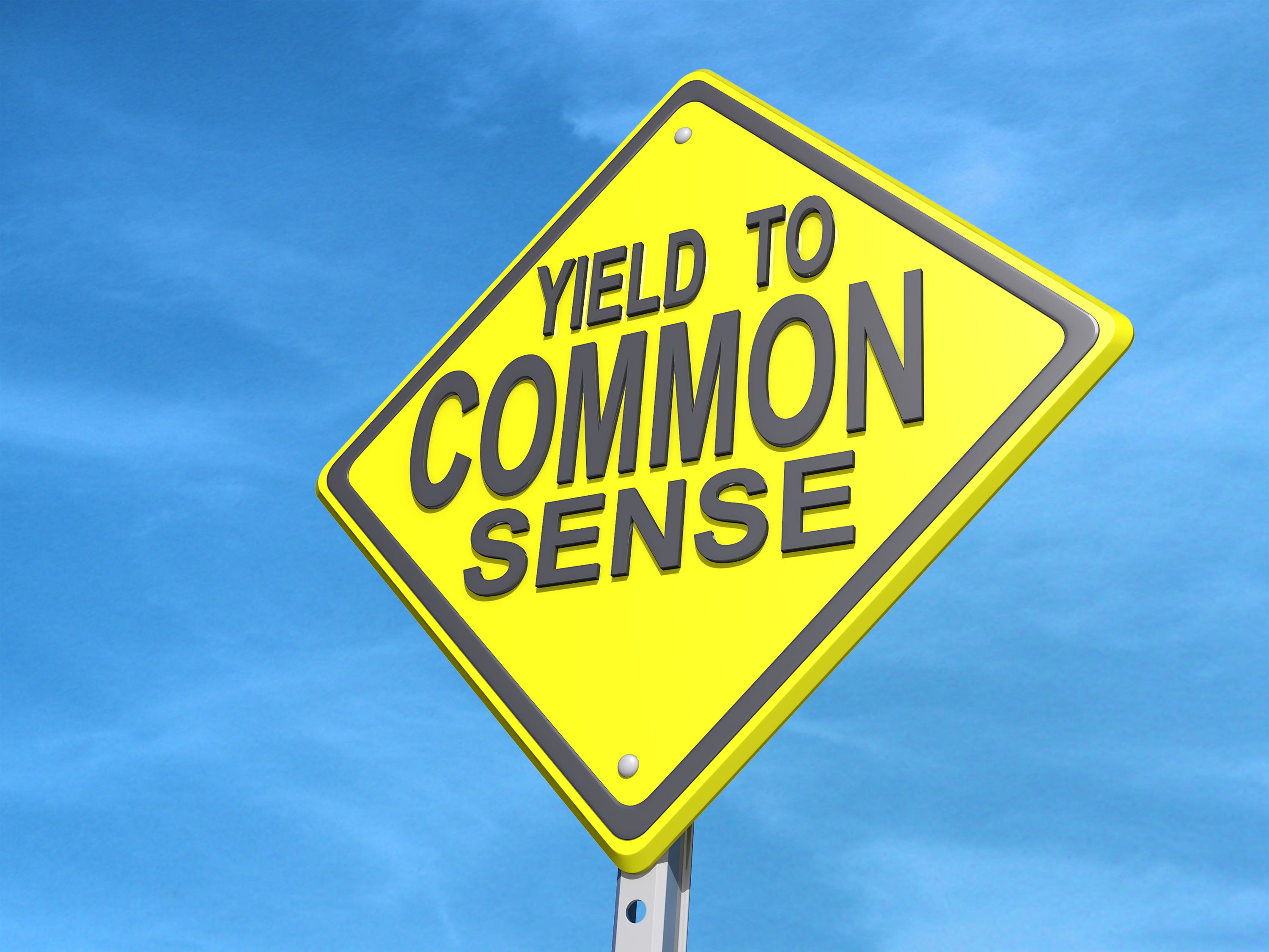What is common sense?
One cynical definition of common sense is "the rationale that supports my position on an issue...particularly when I can't articulate that rationale."
Most of us like to think of ourselves as rational beings. Therefore, the positions we take are rational positions. So obviously other rational people, people with common sense, will also reach the same conclusion. People who take a different position are mistaken, lack common sense, or have ulterior motives.
I believe it is part of our human nature to think this way. I definitely see this influencing my own thought processes. (And since I experience this, I assume that all 'normal' people also experience it; which is why I believe it is part of human nature.)
A corollary to this is the assumption that whatever opinion we hold is more broadly held by the public than is generally understood. People expressing the opposing opinion are part of the vocal minority, and most of the people not speaking up are on my side. We all experience our own "echo chambers" to one degree or another. It is easy to feel that because all my friends (be they in person or online) feel similar to me, the general public must also feel this way.
And, of course, we can't forget confirmation bias, where we overweight evidence that supports our position and dismiss evidence that contradicts our position.
So, how does this apply to our representative democracy? Should our elected officials vote for what they believe is in the best interest of the people they represent or should they vote for what the people they represent believe* is in the people's best interest?
An honest self-assessment may find that where we stand on this question is heavily influenced by whatever hot issue we are most concerned about at the moment. And where we stand on this question may change from time-to-time depending on the issue at hand. If we perceive that our position is the majority position, then we are more likely to agree with the idea that representatives should "respect the will of the people". If we perceive that our position is the minority position (but right none-the-less) then we are more likely to agree with the idea that representatives should carefully study the issue and decide for themselves what is in the best interest of the community. That's why we elected them as leaders, right?
Based on the feedback I've received before and after contested decisions, I put together this handy table:
Please understand that on every contested issue councilors will hear sentiments from at least two of the four boxes. And because of our propensity to overestimate how broadly held our own position is, councilors will often have both sides telling them to listen to the will of the people.
Which brings me to my final thought for this blog post. *Knowing the will of the people. What is the right way to determine the will of the people?
Should elected officials rely on the people who reach out by email and come to speak in public meetings? That is a self-selected group, generally a group where the item is of special interest to them. Should the opinion of someone who could be personally affected or who is very concerned about an item count more or the same as someone who doesn't care about the issue? It is also worth noting that among people who care about an issue, people who believe the Council is going to vote the way they want them to are less likely to take the time and make the effort to show up to a meeting or write an email than people who believe the Council is going to vote opposite of the way they want them to.
Should elected officials invite the public to participate in "unscientific" surveys? People still self-select to participate, much like the feedback we get by email and in the meetings. But this method lowers the time and effort required to express a position. Is that a good or a bad thing?
Should elected officials commission and pay for "scientific" surveys to gather the opinions of a "representative" sample of the public? There are many hurdles to collecting a truly representative sample. What methods are used to contact participants? Some demographics are harder to reach than others. People can still select to not participate in the survey. There are ways to mitigate these hurdles, but they cost money. If the general public isn't familiar with an issue, is it really that helpful to get a representative sample of their opinions? Who should be polled? Active voters? Registered voters? Everyone over 18?
Should we rely on the officials elected by the people to represent them? Considering how low our voter participation rates are (and the percentages that are reported are against the number of registered voters, not eligible voters), how representative is the vote that put elected officials into office?
My point is that it is harder to know "the will of the people" than one might expect, and there is a bit of nuance in what is meant by "the will of the people".
Thanks for making it this far in the post. I hope it is helpful in understanding how I try to make sense of a passionate and articulate public weighing in on all sides of an issue.
